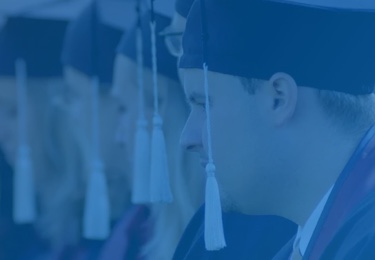PhD position (Novel nanofiltration membranes for contaminant removal) - Multiple positions are availableFull PhD
English
Working Language
Eggenstein-Leopoldshafen
Location
12 Nov 2024
Application Deadline
as soon as possible
Starting Date
Content Navigation
Overview
Open Positions
5
Time Span
as soon as possible for 3 years
Application Deadline
12 Nov 2024
Financing
yes
Type of Position
Full PhD
Working Language
English
Required Degree
Master
Areas of study
Chemical Engineering, Process Technology, Environmental Engineering
Description
Description
This PhD project builds on ongoing research projects in the area of Nanofiltration for Contaminant Removal at IAMT. Novel nanofiltration membrane materials will be examined with the target of achieving perfect / good removal and selectivity. The list of contaminants will be expansive, from steroid hormone micropollutants to pesticides, pharmaceuticals, and fluorinated organic compounds, etc.
The project will focus on the i) development of membrane filtration systems and operation with novel nanofiltration membranes, ii) examination of the physical/chemical processes inside the membrane pores and their impacts on the removal of a variety of micropollutants, iii), investigation of membrane characteristics and selection criteria, and iv) design of membranes to achieve complete removal.
There are many aspects of this project that require in-depth research and development, to address the following research questions;
- Can novel nanofiltration membrane fully remove different types of micropollutants and how micropollutant removal be verified?
- What are the mechanisms for micropollutant removal with these membranes?
- What are the limiting factors to micropollutant removal, and which membrane features allow overcoming such limitation?
The PhD project will be largely experimental with some modelling aspects, and will begin with an identification of a set of research questions based on a detailed literature survey. A preliminary research proposal is required for the application stage with a timetable for a four-year research project. Execution of the research plan through conducting of experiments, sample and data analysis and write-up of results for scientific publication are part of the PhD process – a journey to become an independent researcher!
Throughout the project, there will be multiple opportunities for cooperation with internal and external partners, supervision of Master students, giving oral presentations at conferences, writing high-impact journal articles, as well as sharing your knowledge via (a minimal amount of) teaching. Career development through many team activities is an opportunity to attain leadership skills and prepare for exciting professional opportunities in industry or academia.
Qualifications
The candidate will hold a Masters in Chemical, Process, Environmental Engineering, or equivalent, and is a naturally curious person who is eager to learn more and has a strong interest in research. Experience with membrane filtration systems (of any scale) is a definite advantage, as well as being comfortable in specifying system components and sound experimental problem solving skills – as well a good common sense. Excellent English language proficiency is essential, basic German language skills of advantage.
About KIT
KIT is one of the biggest research institutions worldwide and has access to state-of-the-art research facilities resulting from the merger of the National Research Centre of the Helmholtz Association and the former Technical University of Karlsruhe. This project is hosted by the new Institute for Advanced Membrane Technology (IAMT). The PhD will be registered in the Faculty of Chemical and Process Engineering.
Contact
Prof. Dr.-Ing. Andrea I. Schäfer, Institute for Advanced Membrane Technology (IAMT), +49(0)721 608 26906, Andrea.Iris.Schaefer@kit.edu , https://www.iamt.kit.edu.
Applications
Multiple positions are available!
Please send applications with CV, publication list and your contribution to the publication (if relevant), academic transcripts, degree certificates, contact details for three references and a preliminary research proposal to the above contact. A valid driver’s licence will be required. A read of our publications on micropollutant – membrane interactions will help preparations!
Required Documents
Required Documents
- Motivation letter
- CV
- Certificates
- Transcripts
- List of publications
- References
